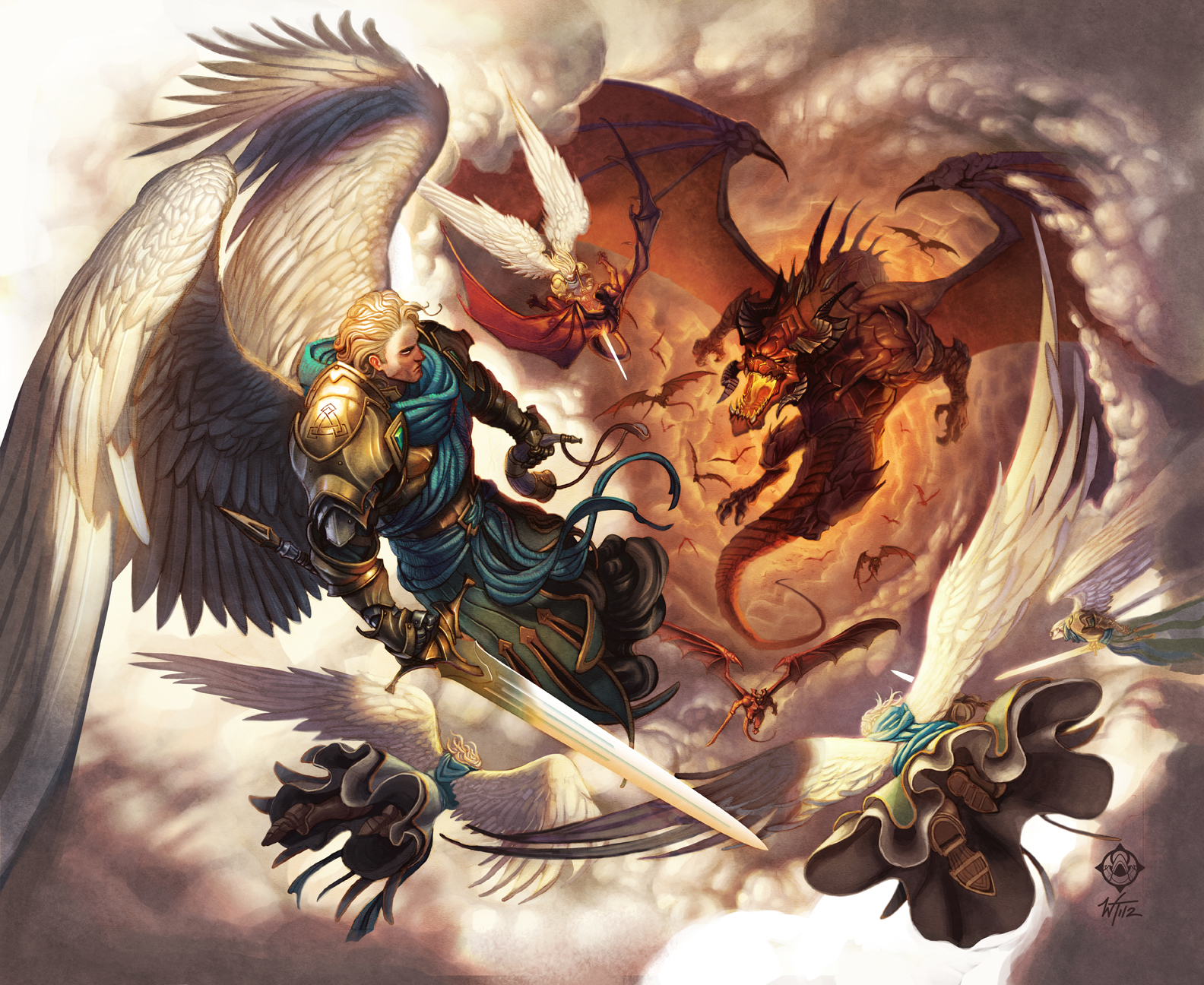Before I'd read it, I had gotten the notion that the people that were fighting in the book were invincible. Turns out its the bad guys that are nearly invincible (each has one weakness that can be exploited but generally only they know what it is) and the humans have some nifty gadgets and ways to protect themselves but will go down in a fight just like the rest of us. Despite the fact that it wasn't an epic battle between immortals (Ha! I made another pun! Though, unfortunately, you won't get it unless you read the book...I hate when people do that. Sorry for the anti-climatic moment;) my thoughts were thrown to the the War in Heaven that Raphael is describing.
We've talked about how this concept is kind of ridiculous. Angels that can't die wailing on each other with enormous two-squadron destroying swords and molten-rock spitting cannons? Someone's been hitting the laudanum a little bit harder than they should for that gout...
 |
| I thought this depiction was interesting because Satan is portrayed as a dragon. Yikes! Not exactly the image I got while reading. But seriously, check out the sword. |
But after poking around, it turns out that Milton's ideas aren't drug induced at all, in fact, according to Jason P. Rosenblatt, Milton extracted pieces of the battle from the Old Testament, mainly, Exodus and the Johannine texts (which I discovered are the epistles of John and the Book of Revelations). Milton even used particular verses that can apparently be picked out as one reads Book VI (though Rosenblatt emphasizes that they are taken from the sporadic and diverse verses from Revelations.)
Milton is writing an epic, he's got to have a book dedicated to describing a battle. It would hardly be an epic without one. Remember he's working from pieces like The Iliad, The Odyssey, and The Aeneid. Good battle scenes are a staple. Milton acknowledges the disconnect "though strange to us it seemed/ At first, that angel should with angel war..." but after looking at what Milton had to work with, this seemed like a good depiction to him (PL.VI.91-92). I doubt this section was intended to be comic relief.
Structural Unity and Temporal Concordance: The War in Heaven in Paradise Lost
Jason P. Rosenblatt PMLA Vol. 87, No. 1 (Jan., 1972), pp. 31-41 Published by: Modern Language Association Stable URL: http://www.jstor.org/stable/460782
It is so neat to see what details other classmates choose to focus on and research. For instance, I didn't think much of the war in Heaven-probably because we always mention it in church. But what exactly was it-if not for cannons and shields and molten lava? And then to learn that Milton based it on scriptures in the Bible! I feel like a terrible theologian (not that I really am). Thanks for your novel post, Elise!
ReplyDeleteI love me a good action scene, whether in a book or a movie. I agree that an epic battle sequence is an important staple for an *epic*
ReplyDeleteI was reminded of the Greek Gods and their petty wars between each other. They can't die, but they can certainly cause each other a lot of pain and humiliation. Is that what the whole point of God putting down Satan was?
ReplyDeleteComment at the dragon bit, Revelation 12:7-11.
ReplyDelete